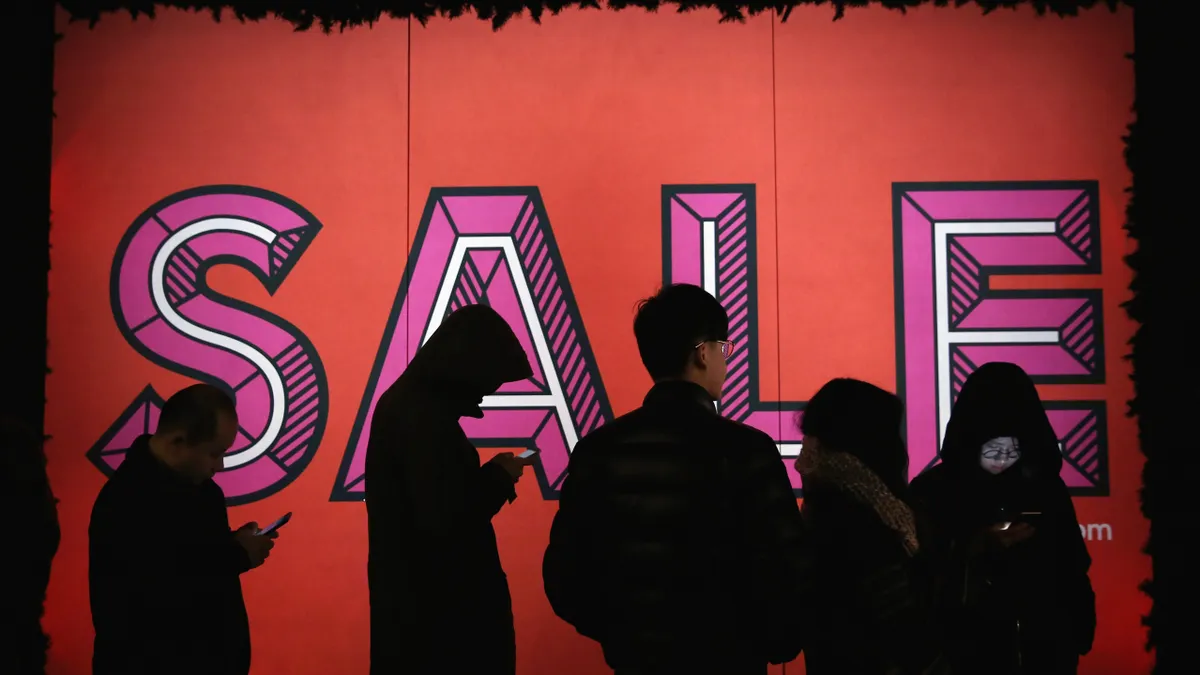The usual flood of 50%-off sales and buy-one-get-one-free offers is evident now that the holiday season has wrapped up, but a recent study spanning 13 years suggests that promotions may not be as effective as ads as some marketers believe.
In the latest report in its ROI Genome series, New York-based Analytic Partners studied the performance of traditional media spending versus coupons, bulk-buy discounts, rebates and similar kinds of promotional tactics. The data comes directly from the firm's clients, which include more than 700 brands in 45 countries around the world. The study found that, between 2004 and 2017, media spending on ads was an average of 35% more effective than promotions.
The debate over the relative benefits of advertising versus promotional spending stretches back to at least 1967, when the Journal of Marketing published an article suggesting brands allocate "developmental dollars" for promotions in places where sales were weak, while "sustaining spending" on ads were placed in locations with stronger sales.
Part of the problem today, according to the Analytic Partners report, is the increased capabilities of consumers to do their own price comparison research with their smartphone, as well as a tendency among brands to overdo it with deep-discount promotions. Analytic Partners found that promotions were less effective, for instance, when they were deployed as frequently as every other week.
In search of a better balance
The research was inspired by questions from Analytic Partners' clients about how to strike the right balance between advertising and promotions, Senior VP Mike Menkes told Marketing Dive. In some cases, brands are responding to pressure from competitors that have increased their promotional activity, he said. Others are feeling the heat from within to meet annual or quarterly sales targets.
"When you run promotions, you can visually see the effect on sales," Menkes said. "That feeling doesn't exist with advertising. If I advertise today, I don't know if it's going to affect my sales this quarter or not."
Analytic Partners' findings echo a similar study conducted long before the digital era in 1999, which found that brands that emphasized advertising saw an average ROI of 30% compared to brands that focused on promotions, which drew an ROI of 18%.
Rather than choosing one tactic over the other, however, Menkes said the Analytic Partners study aims to encourage a healthy balance. The data shows, for example, that advertisers who combined promotions with a bump in media spend experienced a 12% higher ROI between 2015 and 2017.
Not just digital ads
The effectiveness of media spending may seem surprising given the rise of ad blockers and concerns from advertisers about fraud, viewability and brand safety. However, Analytic Partners' research looks holistically across traditional channels like TV, radio and out-of-home than focusing solely on digital advertising, Menkes explained.
"We've seen digital ROIs have been declining over time," he said. "In some cases, it's to be expected, though. We're seeing brands that started by spending a couple million on Facebook that are now spending something like $40 million. How many impressions can you realistically deliver on a platform like that?"
Similarly, while ad budgets may be cut in the latter part of the year, Analytic Partners has seen more money allocated toward promotions as a direct way to generate revenue. But more time should be spent on developing how promotions are packaged and presented — as much time as brands spend making careful choices around ad creative, Menkes said. It might be the difference between offering a free product alongside a purchase, for example, versus merely discounting something by 50%.
"Consumers know whether or not it's a good deal," he said. "The perception of a deal is more important than the deal itself — in other words, if it's perceived to be of good value. There's a big opportunity to improve the go-to-market strategy for promotions. It's more challenging and more difficult, but that thoughtfulness pays dividends."
Analytic Partners' report also recommends leading with advertising and then following up with promotions once awareness lifts, rather than the opposite. This means that brands must consider that media spending won't always offer the kind of near-immediate gratification of promotions. According to the firm's customer data, for example, there was a two to three times greater effect in the budget allocated to media spending over the long term versus promotions, which tended to deliver a one to two times lift.
"The big thing we'd like to get these businesses thinking about more is how to grow their business in a sustainable way," he said. "Some of the decisions they're currently making aren't good for tomorrow, or even for today."






















